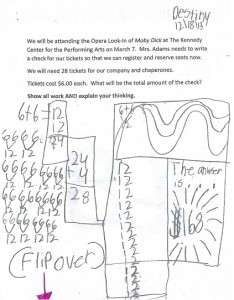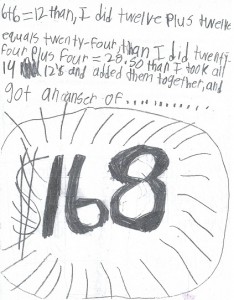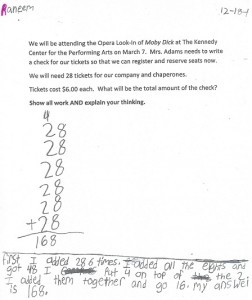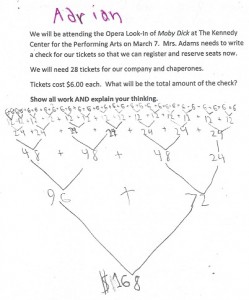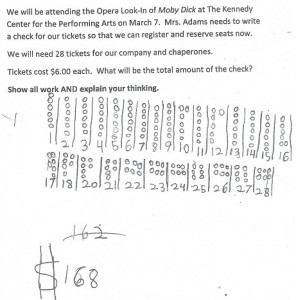If we want it or need it, we engage and learn it.
The curriculum is often devoid of meaning unless we connect the dots and integrate the learning process to the real world. “What are we learning?” and “Why are we learning it?” should be questions kids can readily answer as they apply the skills they learn in authentic contexts.
The opera process provides daily opportunities for this authentic application of real world skills across disciplines.
On March 7, we plan to attend the Washington National Opera’s Look-In performance of the opera Moby Dick at The Kennedy Center for the Performing Arts in Washington, DC. Tickets must be reserved and paid for in advance by check or money order. When the school secretary asked for the check amount to include with the registration, I presented the situation to the kids and they immediately set to work, knowing that it was their responsibility to determine an accurate amount so that seats could be secured in a timely fashion. They wanted it. They needed it. They solved it.
If we want it or need it, we engage and learn it for REAL.
I did not provide a model or mathematical algorithm to guide them. Students implemented a variety of strategies as they approached the problem. In so doing, they discovered when their solutions were and were not reasonable. Whether their answer was accurate or not, they understood how to arrive at a solution that made sense. By expecting students to show work and explain thinking, understanding of concepts and points of confusion become apparent. This way of thinking about problem solving is always encouraged.
If you have no idea what to do . . . take a risk, make an attempt, study your mistakes, change course, try again and use your mistakes to gauge understanding and move toward accuracy and efficiency.
